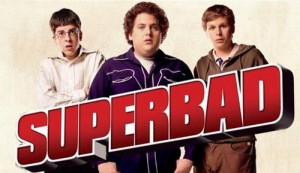Can Hollywood beat the recession blues? Sun. Jan. 4 2009 Constance Droganes, entertainment writer, CTV.ca
Will it be lights, camera, action as usual in Hollywood in 2009? Yes and no.
Heroes triumphing over gloom and doom on the big screen have been Hollywood’s bread and butter for more than eight decades. But does the world’s dream capital have what it takes to survive a recession?
Absolutely, says Patrick Corcoran, director of Media and Research at the National Association of Theatre Owners (NATO).
“Right now movie theatres are doing remarkably well,” says Corcoran, who spoke to CTV.ca from North Hollywood, Calif. In fact, according to NATO’s data, box office admissions have gone up in five of the last seven recessions.
“From the beginning of September, when the credit crunch really took hold, to the beginning of December we’re up 15 per cent in box office and 9 per cent in admissions. That’s compared to the same period last year,” says Corcoran.
That growth, according to Corcoran, is linked to the nature of the fall releases consumers have had to choose from in 2008.
“Last year during the autumn there were a lot of heavy dramas in the theatres — movies about Iraq, a lot of independent films that were eating each other’s business. The box office was truly terrible,” says Corcoran.
“What drives the box office is what’s available at the theatres,” says Corcoran. “If there are movies that people really want to see, they’ll go out and see them regardless of the economy.”
Great Depression didn’t stop movie-goers
Of course, studio execs are the first to tell us that even in the midst of the Great Depression, when more than a quarter of the population in the United States was out of work, people still managed to scrape together the pennies it took to go to the movies.
Today’s a different story.
According to a recent survey done by Forrester Research, those aged 25 to 34 were the most willing to sacrifice a night at the multiplex or premium cable if money gets tight. High-speed Internet was the main thing they couldn’t live without.
Maybe rising Baby Boomer numbers will compensate for that trend? But in the U.S. alone there are 60 million homes with high-speed connections. With endless entertainment choices available today– free movie downloads topping the list — will Internet-age consumers still rush to the movies?
Corcoran believes they will.
“Even when people are cutting back, movie theatres will still have the advantage. People will still want to get out of the house and in a recession movies are the least expensive form of entertainment,” says Corcoran.
Biz battens down the hatches
Driven by that mentality, studios are sinking more than a half-billion dollars into productions for their 2010/2011 calendars – and that’s despite the ongoing threat of a SAG strike, something that could cost big studio productions as much as $500,000 a day.
“Hollywood is never going to go away,” says Canada AM critic Richard Crouse. “Every time something bad happens people say it’s going to be the death of movies. Then everyone runs to see ‘The Dark Knight’ or “Shrek the Third” and these movies make hundreds of millions of dollars.”
The figures don’t lie. In 1929 – the start of the Great Depression — Hollywood raked in $720 million. In 2007, that figure exploded to $9.6 billion.
Who knows? In December of 2008 Jeffrey Katzenberg, the CEO of DreamWorks Animation, told a Toronto audience that 2009 would the year of 3D. Maybe that hot trend will help pad Hollywood’s coffers with even more mega-millions?
But in an era where the cost of making and marketing movies has become astronomical and studios are facing huge credit crunches, less risk and more care on the spending side of the industry will be the modus operandi in Hollywood for the foreseeable future.
“Hollywood will survive. But I don’t think we’re going to see as many $20-million paycheques for stars,” says Crouse.
Studio co-productions will also be on the rise.
“Ten years ago it would have been unheard of to see Warner Bros. and Paramount working together on a big movie like a ‘Benjamin Button,'” says Crouse.
In May of 2004, in fact, Warner Bros. and Paramount Pictures joined forces to get this $150-million film onto the silver screen.
As Corcoran says, “When you’re worried about protecting your bottom line you go to co-productions to spread out the risk and costs up front.”
Superbad is super-successful
Finally, those like Judd Apatow who can churn out comedies on the cheap could become Hollywood’s top dogs in 2009.
“In tough times like these good, fun stories are what Hollywood wants to see,” says Corcoran.
Moreover, Hollywood will want films that can turn a huge profit — something Apatow proved he could do with such films as 2007s “Superbad” (budget: $20 million, worldwide take: $$169,871,719) and “Knocked Up” (budget: $33 million, worldwide take: $219 million plus according to boxofficemojo.com).
As Crouse says, “We’re headed for a period where we’ll see a lot of safe filmmaking. You won’t see Zac Efron doing Hamlet. But you may see him singing and dancing in a remake of ‘Footloose.’ It’s ‘High School Musical’ a year later. But the movie is essentially the same thing.”
And for those looking for riskier movie fare? “The really interesting stuff will come from independent films,” says Crouse. “You won’t see anything remarkably different coming out of Hollywood studios for a long time. Not until things turn around.”
Leave a Reply
You must be logged in to post a comment.

